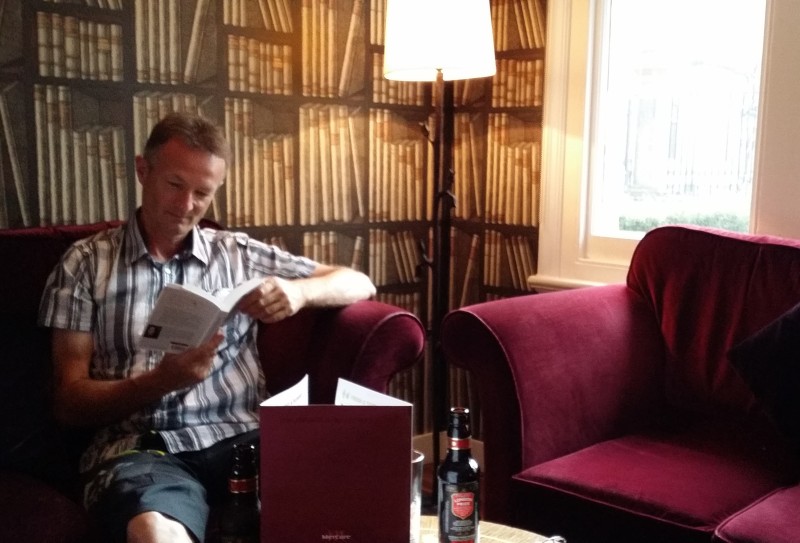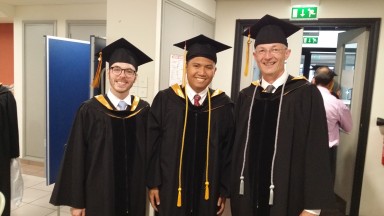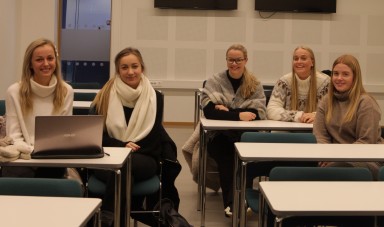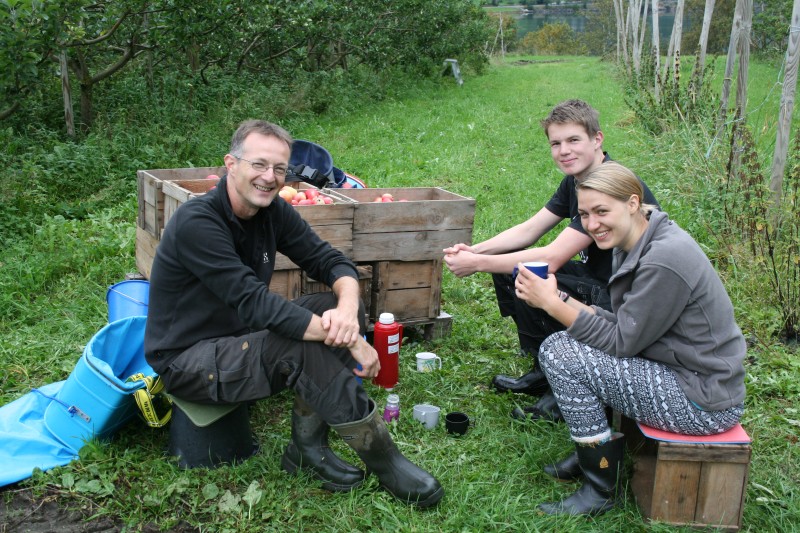Discovered Bitcoin and never looked back
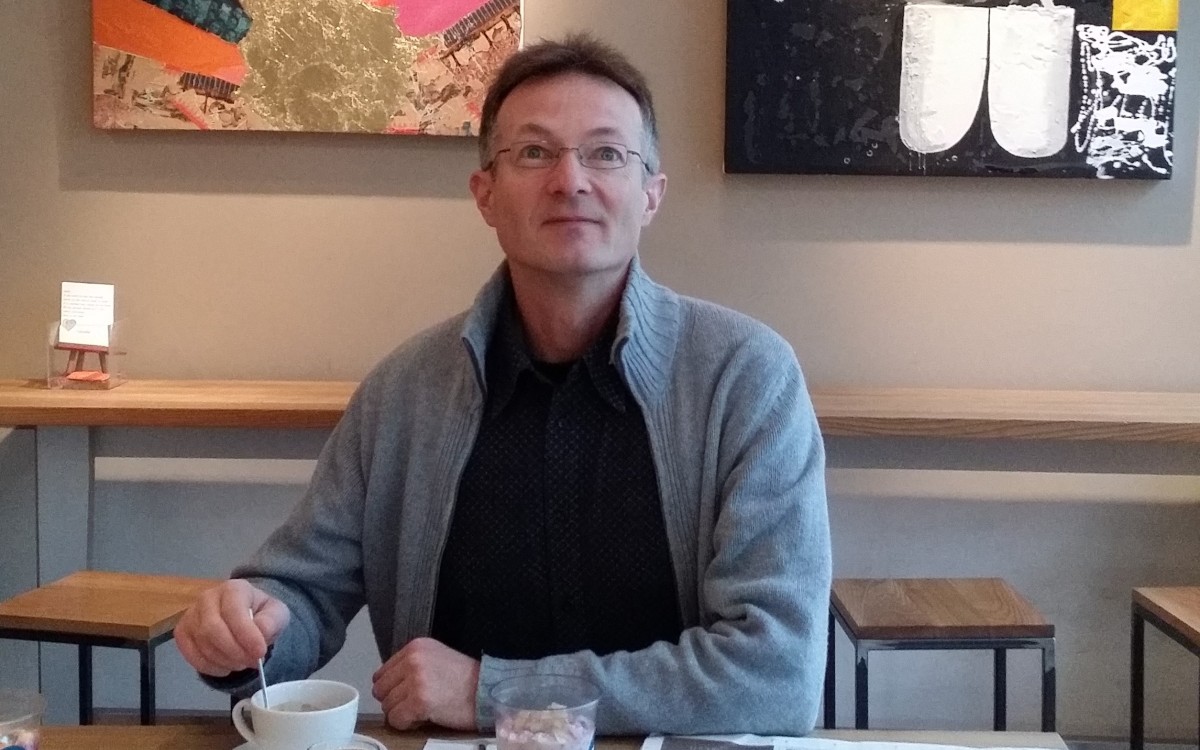
"I am obviously quite absorbed", Svein Ølnes admits. For about a decade, most of the ICT researcher's time has been filled with Bitcoin, blockchain and cryptocurrency.
Technical terms abound in online introductions to the world of cryptocurrency. In seeking to grasp key concepts, outsiders are likely to encounter a plethora of incomprehensible terms such as 'cryptography' or 'distributed database'.
For those daring to move on and enter further into this universe, there is a risk of a lasting impact, according to senior researcher Svein Ølnes at Western Norway Research Institute. About a decade ago he discovered Bitcoin and took an unexpected interest in the subject.
Understood little at first
Svein first heard the term 'Bitcoin' mentioned at a beer brewing event with his colleagues at Western Norway Research Institute. A visiting relative of Svein's, a true beer connoisseur with a professional career in ICT, spoke with enthusiasm about the enigmatic, new addition to the Internet flora. Apart from listening politely, Svein did little to expand his knowledge on the matter in the followings days and weeks.
An e-mail would change this. The relative wrote to provide some suggested reading and the conscientious researcher decided to take a closer look.
"'Monopoly Money', was my initial reaction. Whilst finding the subject somewhat interesting, I had the same, slightly reserved attitude to Bitcoin as everyone else. At that point I did not understand the technology very well either", Svein admits.
Fell down the rabbit hole
Svein's educational background is from Norway's agricultural university at Ås, and the senior researcher combines his academic career in ICT research with fruit cultivation at his farm at Barsnes, an idyllic hamlet near Sogndal.
The rise of the Internet and its integration into Norways's public sector constituted the backdrop for Svein's entry into ICT in 1996. In the years that followed, his own research centred on digitalization in various parts of the public sector. Having witnessed a virtual revolution unfolding within ICT, Svein had seen numerous technologies and concepts rise, cause much ado only to peter out and be replaced by something better. Experience, and perhaps also his personality, had equipped him with an inherent scepticism with regards to new hypes.
This time it turned out to be different.
Svein started reading about cryptocurrency and gradually understood more. In retrospect, he compares what happened to the Lewis Caroll character Alice's entry into Wonderland.
"It was a bit like falling down the rabbit hole and walking on to discover world upon world in there – and never coming back up", Svein explains with a laughter. He was, and still remains, deeply fascinated by how the Bitcoin technology works and by the fact that it actually functions. Even though he is not a 'hardcore technologist', he has sufficient insight to comprehend how the system is set up, and he is more than willing to explain aspects of it to colleagues and friends, if they ask. As some might want to add, with stars in his eyes.
"As you dig deeper, you discover how extensive and brilliant it all is", he says.
An expert
In time Svein acquired a rather decent insight into the technology, including anything from the big picture to insiders' details such as 'Bitcoin' being spelled with a capital B when referring to the system and with a lower case b when referring to the currency. In his research, he started to look at how blockchain technology might fill various needs in the public sector. At the institute, Svein introduced bitcoin payment in the Friday wine lottery. One year he demonstrated a live transaction in bitcoin at the annual research festival on campus.
His blog posts and tweets also reflected Svein's new main interest and soon, he voiced his opinions on cryptocurrency more vocally, principally in Norway's financial daily, Dagens Næringsliv. The 'bitcoin researcher' (or even 'expert') began to be noticed by the media. Svein remains the only staff member at his institute to have been interviewed twice for the legendary column 'På nattbordet' (lit. 'On the bedside table'), where business leaders and other people of interest provide a glimpse of their private sphere by letting the readers in on what they are currently reading.
Mysterious origin
Bitcoin's origin is veiled in mystery; the first-born of all cryptocurrencies, designed and launched by an anonymous maker. A few facts are known: In August 2008, someone created the domain bitcoin.org and in October the same year, an 8-page document was distributed to a small group referred to as cypherpunks. In the grey paper, 'Bitcoin – A Peer-to-Peer Electronic Cash System', the new currency was described. Importantly, no third party, neither banks nor authorities, was to be involved in transactions. The currency was launched on 3 January 2009 by someone calling himself Satoshi Nakamoto.
The speculations concerning Bitcoin's origin are still ongoing: Is the currency's maker the world's brightest nerd? A collective, perhaps, acting under a common pseudonym, the way some believe was the case with Shakespeare? And what would the person or persons behind the currency hope to achieve – merely have fun, make a lot of money or turn asset exchange upside down? A number of books exploring these questions have been published, and Svein is among those who are eager to read.
"I am really fascinated that someone managed to create this and remain anonymous. It goes against everything you learn in research and elsewhere about making a name for yourself and maximising returns. This someone has probably realised that he or she has invented something that is quite unique and still, has had the strength of character not to step forward", Svein says.
"Moreover, the person behind Bitcoin owns a fortune worth billions today, but is prevented from touching it, as he or she would risk revealing their identity", he explains.
Eternal traces
One theory is that Bitcoin is a response to the financial crisis in 2007, during which banks and authorities demonstrated a shocking lack of control. Some hold that the purpose of creating Bitcoin was to show how unnecessary third parties are in a transaction, perhaps to point out the way ahead.
What Bitcoin has, to prevent total anarchy? The much talked-of blockchain, the backbone of the entire technology. Every transaction in Bitcoin is documented in a way that is at least as solid as casting in stone – in the form of new additions to a long and unbreakable sequence of digital records. It is this chain the so-called bitcoin mining aims to secure, in a worldwide process haughtily written off as energy-wasting nonsense by several Norwegian politicians.
The blockchain is what Svein is most enthusiastic about. As a researcher he is hopeful that the blockchain can be of use outside the financial sector. He has pulished scientific articles on how public-sector organizations can make use of the technology, for example in preventing falsifications. He envisions that the diplomas of the future could contain a code that referred to the blockchain as a guarantee against CVs with fake degrees.
Also within the economic sphere, Svein is certain that the future must be based on the technology.
"We are heading for a radical shift. The central banks in the entire world are working on ways of replacing cash money. When we reach the point where this is possible, it will be by the help of a technology resembling Bitcoin", he says.
Teaching
In time, the blockchain ever so often found its way into the research projects in which Svein participated. He published scientific articles on the technology and applied for an online master's degree in digital currencies at the University of Nicosia, which he completed in 2018.
Having started his career within the realm of ICT, he had gradually moved a long way into economics. Future economists have also been provided an opportunity to learn from Svein, as he has taught a university-level course since 2018.
The course was developed in cooperation with the Western Norway University of Applied Sciences and is called 'Bitcoin, blockchain technology, and the digital economy'. Much to Svein's liking, the course is open to anyone with higher education and well-suited for online attendance. Although bachelor's students of economics at the local university constitute the main target group, others may attend without travelling to Sogndal.
The first year, more than 90 students followed Svein's course, probably because the exchange rate had recently skyrocketed. The next year turned out more moderate with about a third of the students.
"A course like this may come across as somewhat nerdy, so it was a pleasant surprise that it actually attracted quite a few female participants", Svein says. The five students who chose to attend in person were all girls.
Podcasts in the orchard
Svein readily admits that Bitcoin and cryptocurrency is a major element in his workday as well as his time off, as has been the case for several years.
"That is the case, really. When working in the orchard, for instance, I tend to listen to podcasts. I also read books on digital currencies".
"Would you say you are pretty engrossed in the subject?"
"I am clearly rather absorbed", Svein concedes, before adding: "A high degree of enthusiasm involves a risk that as a researcher, you risk lacking the required critical attitude to the subject at hand. This is why the peer review of scientific papers is so important as a corrective. If you go off the rails with enthusiasm, you will not be able to publish your work, he smiles.
